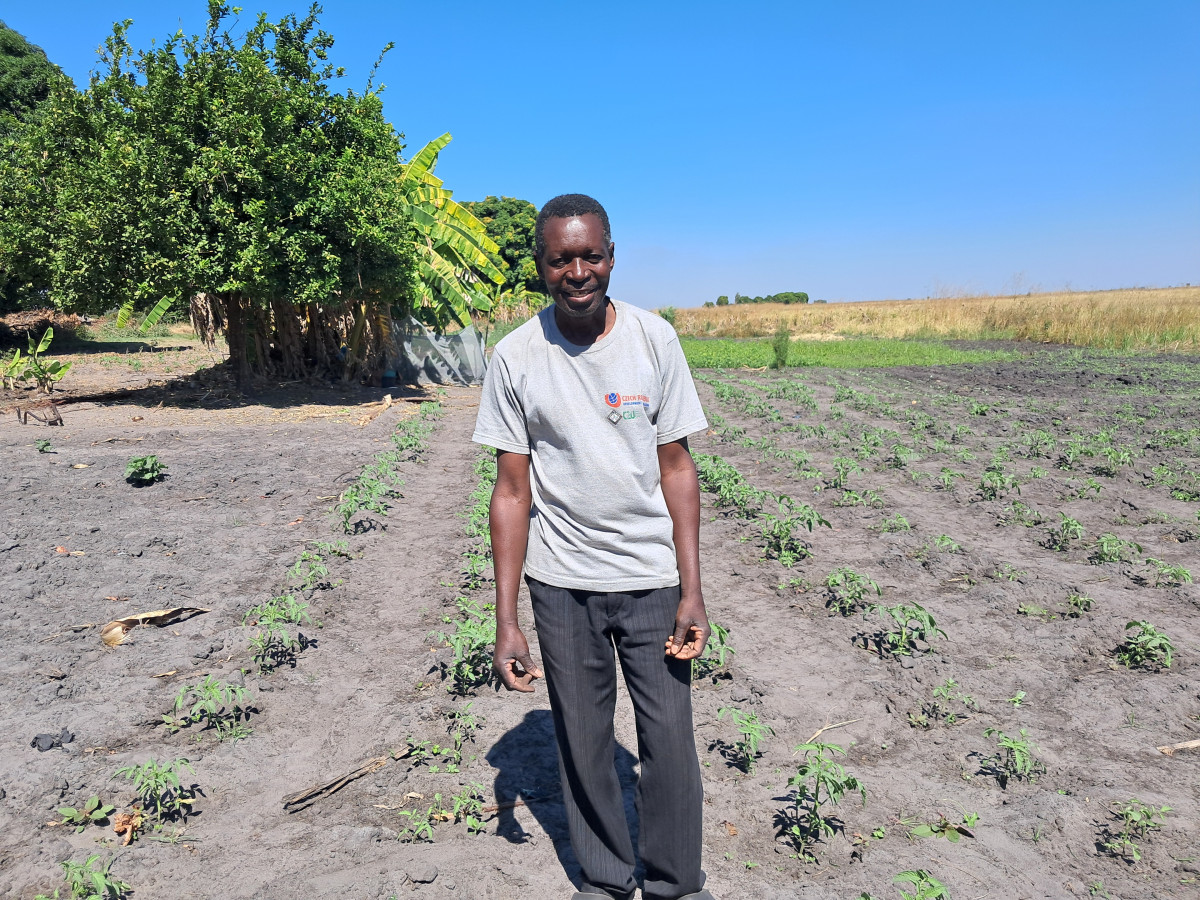Desertification and Drought: addressing the causes of a silent crisis
Share: Share an articleIn the face of deepening climate crises, we are prompted to consider the wide range of ways our actions impact the planet and, in turn, the ways our environment influences us. Unlike other disasters that capture media attention, droughts and desertification unfold quietly and often go unnoticed until their tragic consequences are visible: fires, decreased access to safe drinking water, increased rates of malnutrition and hunger.

Understanding Desertification and Its Impact
Desertification refers to the process by which fertile land becomes desert, typically as a result of drought, deforestation, or unsustainable agricultural practices. This degradation of land threatens the livelihoods of millions, exacerbates poverty, and contributes to food insecurity. In order to combat desertification, PIN has adopted a multifaceted approach involving the promotion of sustainable land management, reforestation, water conservation, an early warning system and community engagement.
Climate change is exacerbating drought and desertification. According to the IPCC, greenhouse gas emissions are leading to temperature increase and to more frequent and hazardous weather events, including drought. While this type of event affects all regions, from the Czech Republic to Zambia, it has a disproportionate impact on the most vulnerable communities.
Our Commitment to Combating Drought and Desertification
Over the past year, we have implemented several projects aimed at mitigating drought, desertification and its impacts. We targeted these issues through a variety of intervention strategies, working with communities and local stakeholders and making significant strides in addressing the root causes and consequences of drought and desertification.
Our work spans multiple continents and addresses various aspects of land degradation and water management, which are essential components of drought management, focusing on both immediate relief and long-term sustainability.
Over the past years, we have been committed to combating drought and desertification i to mitigate its harmful effects, especially in Africa.
1. Sustainable Agriculture in Africa
In sub-Saharan Africa, where drought poses a severe threat to agriculture, PIN has been working to promote sustainable farming practices.
Through one of our projects in Ethiopia, which has been consistently affected by water shortages, we have introduced techniques such as agroforestry, crop diversification, and soil conservation. By training local farmers in these practices, PIN helps to increase soil fertility and reduce erosion, thereby enhancing agricultural productivity and resilience to climate change. Our initiatives also include the establishment of community seed banks to preserve and promote the use of drought-resistant crops. These efforts not only support food security but also empower local communities to become more self-sufficient and resilient against environmental changes through cash assistance.
We have successfully implemented similar projects (aimed at improving agricultural practices) in Zambia, where a severe drought impacted the country as a consequence of climate change, leading to crop failures and water shortages. Through these efforts, we have introduced conservation farming techniques that minimise soil disturbance and promote the use of organic fertilisers like biochar, helping to maintain soil health and reduce the risk of desertification. Additionally, we have supported the establishment of farmer cooperatives, which enable smallholder farmers to access markets and resources more effectively.
2. Building resilient Water management systems through multi-sectoral response
Water scarcity is a critical issue in many desertification-prone regions. In response, we have been active in Southern Angola, a region affected by recurrent droughts. Our team implemented the project "Omande Win -Integrated Support to the Water and Nutrition Sector in Namibe"
In Ethiopia, we have been active in the water sector since 2004. We deliver integrated WASH services through a multi-sectoral approach to strengthen the resilience of the most vulnerable people. WASH projects are combined with education, natural resource management, improved agricultural techniques, sustainable livelihoods, market systems development, etc.
Our experience focuses not only on rural communities but also addresses urban and different emergency contexts. Besides supporting and strengthening community water management committees (WASHCOs) in rural settings, we also focus on WASH services professionalisation, and we work with town water utilities to strengthen the water supply management.
We bring together hydro geologists, water engineers and water authorities to design groundwater protection plans to increase underground water retention. Strategic plans are made to drill new boreholes and ensure sustainable pumping schedules to avoid source depletion. Furthermore, we teach responsible managers in establishing water source protective areas to avoid source pollution.
Supporting the Fight Against Desertification and Drought
To combat desertification and drought, individuals, communities, governments, and organisations worldwide must recognise the significance of addressing land degradation. This global effort relies on further support through awareness raising, support for sustainable practices, volunteer efforts, participation in local conservation efforts, and continued advocacy for policy changes.
Our work exemplifies the kind of dedicated, multifaceted approach needed to combat desertification effectively. Through sustainable agriculture, improved water management, and reforestation efforts, we have made a tangible impact on the lives of many communities.

